Speakers
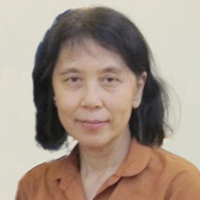
Chun Lin
Chun Lin was born in Beijing and studied and worked in northern China before taking a scholarship to pursue a doctorate at Cambridge University. She teaches at London School of Economics and publishes in both English and Chinese. Her research interests are in the areas of historical sociology, political economy and social theory. She is the author of The British New Left (1993), The Transformation of Chinese Socialism (2006), Reflections on China’s Reform Trajectory (2008, in Chinese), and China and Global Capitalism (2013). She is also the editor of the anthology China I, II and III (2000) and co-editor of Is Mao Really a Monster? (2009) and Women: The Longest Revolution (1997, in Chinese) among other books. Her articles have appeared in various journals and languages.
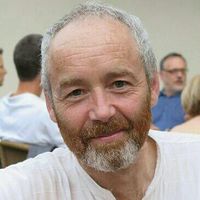
Craig Brandist
Craig Brandist is a Professor of Cultural Theory and Intellectual History, and the Director of the Bakhtin Centre at the University of Sheffield, UK. He has published extensively on the work of the Bakhtin Circle, Antonio Gramsci's relationship to Russian Marxist thought and the development of sociological linguistics in the USSR. He has also recently published work on the continuities between Stalinism and neoliberalism with reference to contemporary reforms in Higher Education, which connects with his work as President of the lecturer's union, UCU, at Sheffield University. Among his major publications are: The Bakhtin Circle: Philosophy, Culture and Politics (Pluto Press, 2002), Politics and the Theory of Language in the USSR 1917-1938 (Anthem Press, 2010) and The Dimensions of Hegemony: Language, Culture and Politics in Revolutionary Russia (Brill, 2015). He is currently working with Peter Thomas on a collection of archival documents and commentary on Gramsci's time in the USSR in the early 1920s. He is currently working on the development of early Soviet oriental studies, its Stalinist distortion and heritage in postcolonial theory today.
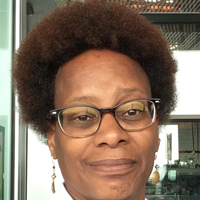
Cynthia Hewitt
Cynthia Lucas Hewitt is the Co-Director and Founder of the International Comparative Labor Studies, an Associate Professor of Sociology, and a Faculty of the Sustainability Minor and the African American Studies Program at Morehouse College, in Atlanta, Georgia. Growing up in Harlem and Bronx, New York, Cynthia was shaped by the freedom and Black Power movements, including the All-African People’s Revolutionary Party, with Kwame Ture (Stokely Carmichael) among the leadership. Her areas of specialization are the political economy of the world-system; race/class/gender inequality; sustainable development and environmental sociology. Her published research includes analyses of wealth/ownership and power bases of racial and ethnic inequality; global inequality issues of brain-circulation and reparation for slavery; and Nkrumahist theory.
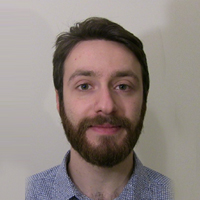
Edoardo Schinco
Edoardo Schinco graduated in Philosophical Sciences at the University of Florence (2016), with a final dissertation about the relation between Hegel’s and Marx’s philosophy. Since he had previously investigated Left Hegelians, he decided to clarify how their influence on the young Marx conditioned Marx’s interpretation of Hegel’s thought. During that period, he published a translation of Ludwig Feuerbach’s Principles of the Philosophy of the Future (2016) and he began to work on a new, broader translation of Marx’s and Engels’s The Holy Family (in press, now). He has become a PhD student in Law and Humanities at University of Insubria with a research project on biopolitics and processes of subjectivation: he focused on how biopolitics and neoliberal ideology interact with each other, and their impact on women’s body. He won a one-year grant for Smith College in Massachusetts, U.S.A. (a.a. 2017/2018) and his current research is related to neoliberal ideology – especially, Gary Becker’s human capital theory – and reproductive issues, such as surrogate motherhood. Here, he also got the chance to significantly strengthen his knowledge in Gender Studies.
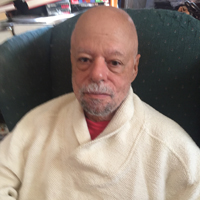
Edward Palmer
Edward Palmer is a globalist, civic activist and organizer. Edward L. "Buzz" Palmer was born on May 13, 1936, in Chicago and grew up in Chicago's Englewood community. In the 1960s, Palmer joined the Chicago Police Department and founded the African American Patrolman's League. Motivated by his experiences during his youth and during his career with the Chicago Police Department, Palmer became active in the community and developed an expertise in international urban affairs. He brought these academic interests into the classes that he taught at UIC, where he later became a senior fellow for the Institute for Government and Public Affairs, and continues to be involved with UIC's Great City Institute. Palmer served as Chairman of Chicago's Sister Cities Committee under Mayor Harold Washington. He and his wife, former state of Illinois Senator Alice Palmer, have been committed to stimulating African American involvement in and awareness of foreign policy issues. Palmer served as chairman of the Senate Advisory Committee on South Africa and acts as a confidante to Prime Minister Michael Manly of Jamaica; Glyn Ford, Member of European Parliamentary (MEP) for the UK; and Harlem Desirs, MEP for France. In these capacities, he advises policy makers on the issues surrounding urban instability. He is a member of the International Board of United Townships in Paris; the President of the Black Press Institute; the Director of the People's Program and the Founder and Executive Director of Comprand, Inc.
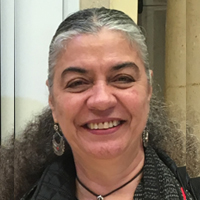
Elvira Concheiro
Elvira Concheiro is a Professor at UNAM, Mexico and the Director of Memoria, a highly reputed Marxist journal. She is also the Director of the Research Group on Marxism at the prestigious organization, Clacso. The research group she coordinates is called ‘Heritages and Perspectives of Marxism’.
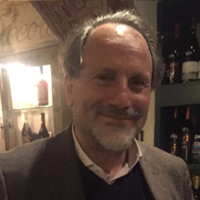
Eugenio Lo Sardo
Eugenio Lo Sardo is the General Director of the Italian National Archives in Rome. He studied at Rome University and his final dissertation was on l’InternationaleSituationniste. He co-founded a magazine entitled Marxiana with Enzo Modugno in 1976, published by Dedaloeditore, with translated articles written by Jean-Paul Sartre, Max Horkeimer, Herbert Marcuse and others. He was Academic Visitor at London School of Economics in 1987 where he studied the economic relationships between England and the Kingdom of the Two Sicilies (later published by Iovine, Naples 1993). He has published many books on the history of civilization, with particular focus on the relationships between the European countries and China and India between 1500 and 1800.
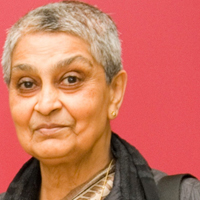
Gayatri Chakravorty Spivak
Gayatri Chakravorty Spivak is one of the world’s foremost literary theorists. She is a University Professor at Colombia University and a founding member of the Institute for Comparative Literature and Society. Spivak is best known for her essay ‘Can the Subaltern Speak?’ and for her translation of, and introduction to, Jacques Derrida's Of Grammatology (Johns Hopkins University Press, 1976). In 2012, Spivak was awarded the Kyoto Prize in Arts and Philosophy as a critical theorist and educator speaking for the humanities against intellectual colonialism in the face of the globalised world. In 2013, she received the Padma Bhushan, the third highest civilian award given by the Republic of India. She has received eleven honorary doctorates and the Chevalier of the Ordre des Arts et des Lettres by the Government of France. She has published a number of articles and books, including In Other Worlds: Essays in Cultural Politics (Routledge, 1987); The Post-Colonial Critic – Interviews, Strategies, Dialogues (Routledge, 1990); A Critique of Postcolonial Reason: Toward a History of the Vanishing Present (Harvard University Press, 1999); Other Asias (Blackwell Publishing, 2008); An Aesthetic Education in the Era of Globalization (Harvard University Press, 2012); and Readings (The University of Chicago Press, 2014). She will be the 2018 recipient of the Lifetime Scholarly Achievement Award from the Modern Language Association of America.
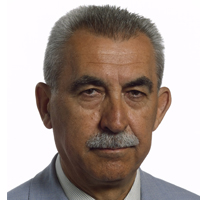
Giulietto Chiesa
Giulietto Chiesa was born in Acqui Terme (north of Italy) in 1940. He was in the Scientific (Physics) formation at the University of Genoa. He was a Correspondent in Moscow for 20 years for two big Italian newspapers: l’Unità, then an organ of the Italian Communist Party (1980-1990), and La Stampa (1991-2000). He was Fellow of the Wilson Center in Washington (Kennan Institute for Advanced Russian Studies) during 1989-1990. He was also a Member of the European Parliament (2004-2009) and that of the Scientific Committee of the World Policy Forum (Mikhail Gorbachev Forum). In 2017 in Moscow, he received the Bunin Prize for his outstanding work in journalism and literature. He has written 17 books on the Soviet Union and Russia. Geopolitics is his main interest and current job. He has been nominated as Honorary Professor at the Federal University of Crimea in 2017. He is now one of the founders of a new political party in Italy, called “la Lista del Popolo” (The People’s list).
